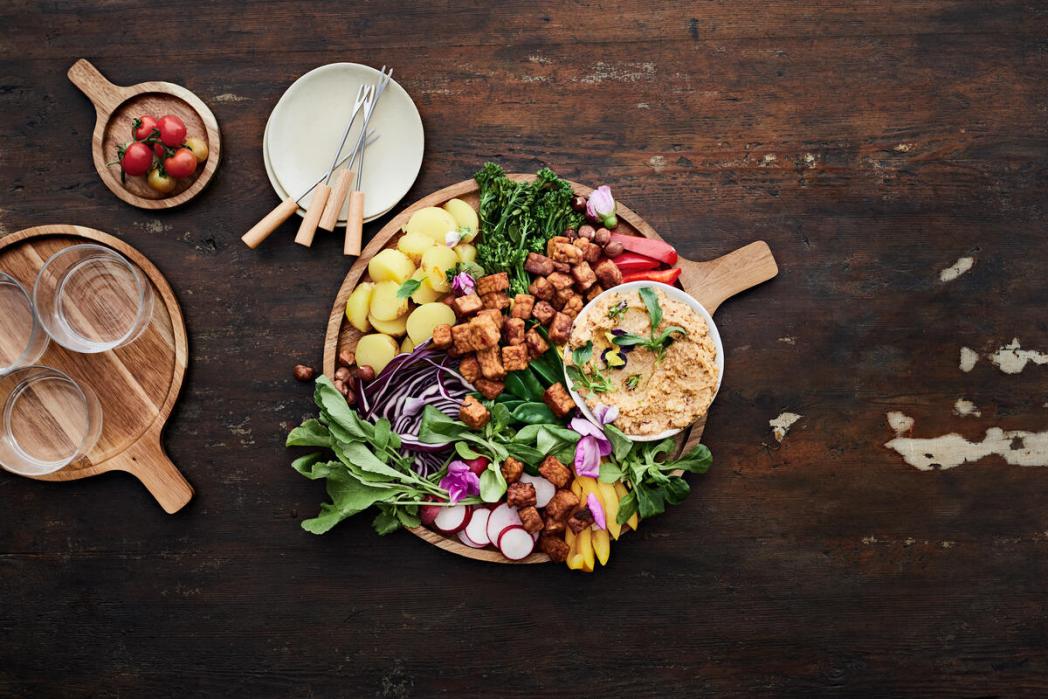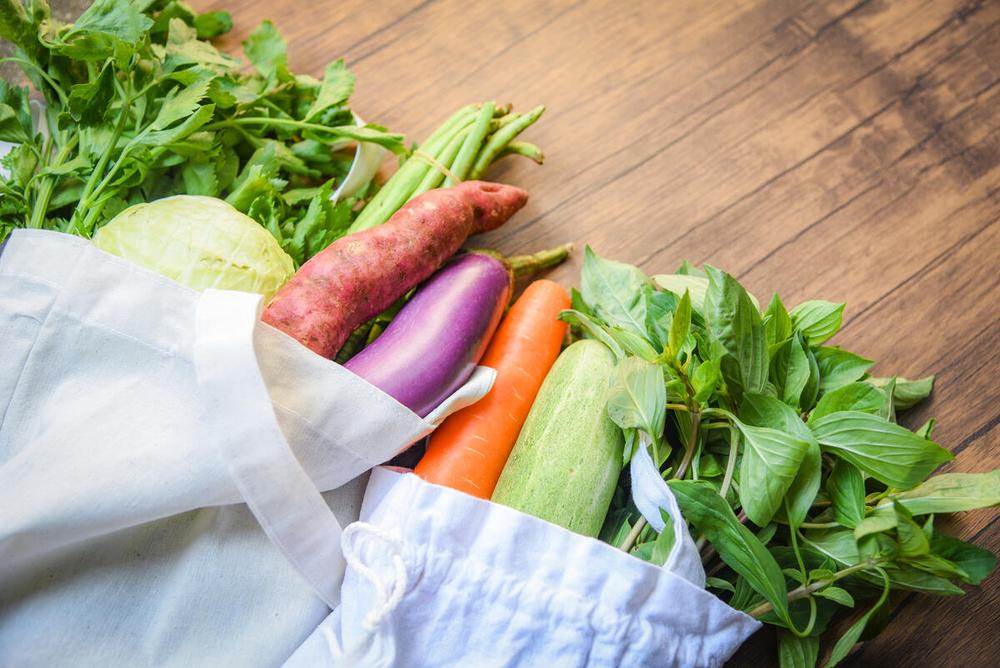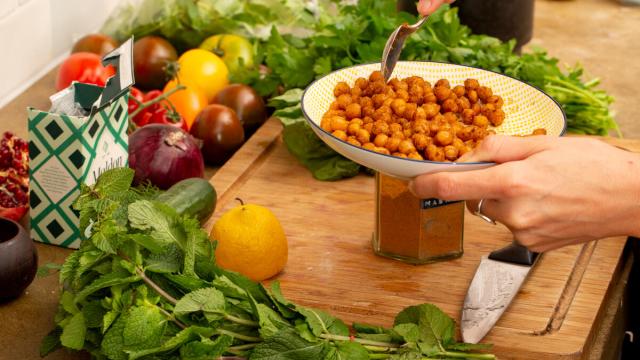Are you looking to make a positive impact on both your health and the planet?
If so, you could consider adopting what WWF calls a ‘planet-based’ diet – a balanced diet that includes more plants and a wide variety of minimally processed foods that are produced responsibly.[1]
Why try a planet-based diet? Not only does it help tackle climate change and nature loss, but it can also support your health.[2] A varied, balanced, plant-rich diet is recommended by the government and registered healthcare professionals in the UK (the Eatwell guide). Studies show plant-rich dietary patterns are linked with reduced risk of heart disease, strokes and type 2 diabetes and can have beneficial effects on risk of disease by helping to lower blood pressure, reducing blood cholesterol and promoting a healthy bodyweight when compared to less healthy dietary patterns.

Here's how you can make a start
- Eat more plants: One of the best ways you can help care for nature – and your health – is by increasing your plant intake. By incorporating more fruit, vegetables, grains and plant protein foods such as beans, pulses, nuts and seeds, you can make a big difference when it comes to reducing your impact on nature and the climate. Adopting a plant-rich diet is not only better for the planet and your health, it can also reduce your food costs![3]
- Reduce your meat & dairy intake: Many people opt for vegetarian and vegan diets which can offer significant benefits for the planet. But you don’t have to cut out meat and dairy completely to be more planet friendly. For people who eat animal-based foods, consuming these in moderation is a key step towards a more sustainable diet. Did you know, cattle ranching accounts for 80% of current deforestation throughout the Amazon, and UK livestock production is highly dependent on imported soy and cereal crops, to feed livestock like chicken and pigs?[4]
- Seafood swaps: Explore eating a variety of seafoods to help lessen the strain on ecosystems and species. In the UK, by moving away from the heavily consumed ‘big five’ seafood species (cod, haddock, prawns, salmon and tuna) and embracing lower footprint species such as mackerel, trout, herring and mussels, you can help reduce the environmental impacts of seafood consumption.
- Diversify your diet: Did you know, 75% of the global food supply comes from just 12 crops and 5 animal species[5] – despite the fact there are more than 20,000 known edible plants worldwide? Eating a variety of foods helps us to access the wide range of nutrients our bodies need to stay healthy and supports your gut microbiome! By having a colourful plate which includes a diverse range of foods, you’re guaranteed a flavourful meal and a variety of nutrients.
- Look for certifications: You can support pathways to more sustainable food production by choosing products with certifications like organic, free range, high welfare, Fairtrade, RSPO-certified palm oil, or MSC-certified seafood.

Additional tips
Ready to make the switch? Here are some additional tips to ease into a planet-based diet:
- Try to eat more whole foods and less highly processed foods. For example, go for beans and pulses and eat less processed meat such as bacon, ham, sausages and nuggets.
- If you consume dairy, swapping yogurt or milk in your breakfast or hot drinks for dairy alternatives, such as oat or soy, is one way that may help you to lower your intake. Go for products with no added sugar which are fortified with calcium, iodine and vitamins B12, B2 and D.
- Substitute meat with plant-based proteins like chickpeas or beans in your favourite dishes. Why not try switching half your beef mince for lentils or beans the next time you make a bolognese or chilli?
- Mix up your sandwich fillings through the week – houmous or nut butters are a great high-protein alternative to ham, cheese or eggs.
- Snack on whole fruit or chopped vegetables rather than crisps, biscuits or chocolate to help boost your plant intake through the day. Dipping them in plant protein-rich nut butters or houmous may help to keep you fuller for longer too!
Remember, everyone’s journey is different, so listen to your body and do what feels right for you. The important thing is that you’re taking steps to reduce your impact on the planet and supporting a more sustainable food system.
Join us in making a difference—one bite at a time!
Sources
[1] Planet based diet - https://planetbaseddiets.panda.org/
[2] British Nutrition Foundation, A healthy sustainable diet - What is a healthy, sustainable diet? - British Nutrition Foundation
[3] University of Oxford, Sustainable eating is cheaper and healthier - Sustainable living is cheaper and healthier - Oxford Study
[4] WWF - Unsustainable cattle ranching, the hidden costs of burgers
[5] The pond foundation - https://np.thepondfoundation.org/the-12-crops-and-5-animals-that-feed-us/

